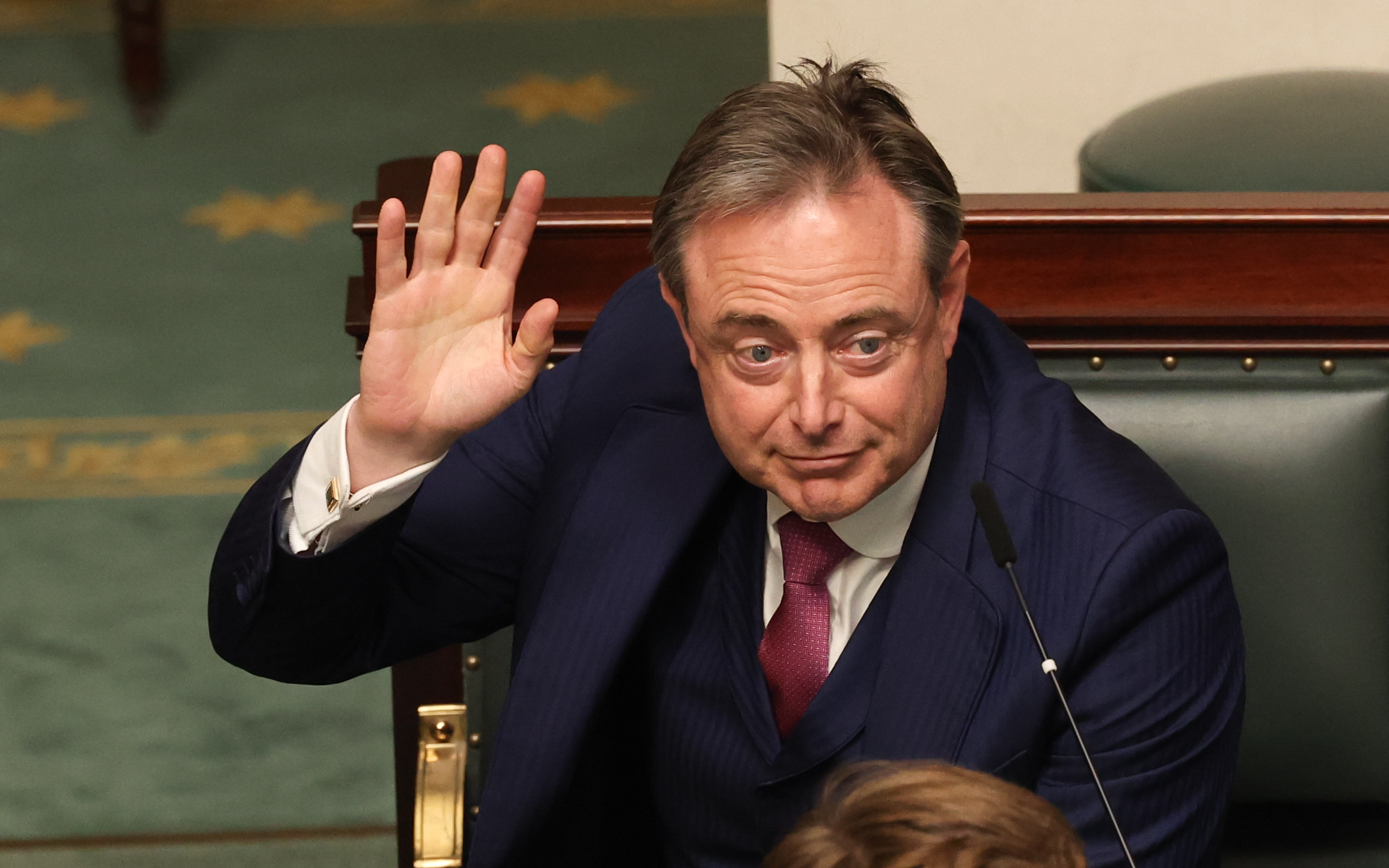Belgium's overspending issue is widely known: the national budget deficit increased considerably in 2023, rising to 4.4% of GDP (gross domestic product). Overall national debt stood at 105.2% of GDP.
The State's growing deficit and public debt have recently been called out by the EU regulators, who have taken first steps towards opening an excessive deficit procedure to make Belgium comply with EU budget rules.
While Belgium has been slapped on the wrist at the EU level for its debt and deficit woes, the regional managing of budgets has also led to tension and division, even fuelling calls by right-wing nationalist parties for Flemish independence.
Belgium's many budgets
Belgium is a country marked by division, with powers shared between regions and the Federal Government. So too in affairs of finance, with no single department controlling the purse strings.
Belgium is one of the EU Member States with the highest levels of fiscal decentralisation: about 50% of the total public budget is not controlled by the Federal Government but is managed at a regional and local level.
As well as the federal budget prepared by the Federal Government, budgets are drawn up each year by five sub-national governments: the Flemish Government (which manages both the Flanders region and the Dutch language community), and governments for the Wallonia Region, the Brussels-Capital Region, the francophone community and the German language community.
Differences in regional debt
Budget deficits in the past five years have led to a 66% increase in the total debt of Belgium's communities and regions, which reached €101.3 billion in 2023.
While at a federal level the budgetary deficit swelled €6.8 billion between 2022 and 2023, overspending in regional budgets has also grown by €2 billion over the same period.
Last year, the Flemish Government overspent by €2.769 billion, while in Wallonia the budget deficit reached €2.151 billion; in the Brussels-Capital Region the deficit totalled €1.513 billion.

N-VA's Bart De Wever gestures during a plenary session of the Chamber at the Federal Parliament in Brussels, on Wednesday 10 July 2024. Credit: Belga / Virginie Lefour
But figures show a clear divide between the fiscal situation in Flanders and the public debt now being accumulated in Wallonia and Brussels. The debt-to-revenue ratio (similar to debt-to-GDP at a national level) in Flanders was just 52% in 2023, compared to 204% in Wallonia and 205% in Brussels – in both cases more than double their 2023 revenue. An article published by the National Bank of Belgium (NBB) in 2022 described the growing debt ratios in Wallonia and Brussels as "worrying".
As a region's total debt increases, so do the interest payments on that debt, further draining already squeezed public finances. Recent analysis by the University of Namur's Centre for Research in Regional Economics and Economic Policy (CERPE) found that by the end of this year Wallonia will have spent €522 million just paying the interest on its debt. It could spend almost 6% of its total revenues on interest repayments.
Why is there such a difference between regions?
Wallonia's economy flourished in the Industrial Revolution, helped by a ready supply of coal. Flanders, a largely agrarian region, was historically much poorer.
However as mines were depleted and the Belgian economy evolved, Flanders began to thrive financially and surpass Wallonia, boosted by the development of key trade ports in Antwerp and Ghent.
As the NBB wrote in an article in March 2024: "Wallonia has long had lower levels of GDP per capita and income per capita than Flanders and consequently had weaker growth".
Today, Flanders has a notably higher employment rate (76.7%) than either Wallonia (66.2%) or Brussels (63.3%). The average income in Flanders is 7% above the national average, with Statbel noting that residents of Wallonia and Brussels are "considerably lagging financially".
While still trailing Flanders in terms of employment, the smaller Brussels-Capital Region has seen a huge uptick in economic activity and an influx of wealthy expat workers since it became the de-facto capital of the EU.

Smoke at the Marcinelle coal mine, 8 August 1956. Credit: Belga Photo Archives
Calls for Flemish independence
Economic disparities between the regions have driven tension between governments, especially due to the fact that taxes paid in more productive regions can end up indirectly funding social supports in less wealthy areas.
A recent study found that some €2.6 billion in "interregional transfers" went from Brussels towards Wallonia in 2023; for Flanders the money flow to Wallonia rose to €8.5 billion last year – meaning Wallonia received a total of €11.4 billion. This equates to an average of €2,100 per year in taxes from each Brussels resident, and €1,259 per Flemish resident, going to Wallonia.
Egged on by Flemish nationalist parties N-VA and Vlaams Belang, this has fuelled a rhetoric that Wallonia is not pulling its weight and feeds into calls for Flanders to have greater financial independence. Current N-VA president Bart De Wever once drove a convoy of trucks filled with 226 million fake €50 notes from Flanders to Wallonia, in protest about financial transfers between the regions.
In 2022 De Wever argued that only confederalism (which would see more powers and competencies go to the regions instead of the centralised Federal Government) can solve growing budget deficits across Belgium.
June elections aftermath
Little over a month after Belgian federal and regional elections, governments for the Walloon Region, French Speaking Community and German Speaking Community have already been formed, and talks are underway to assemble those in Flanders, Brussels and at a federal level.
As the right-wing and far-right made significant gains in Flanders, with 46.8% of the regional vote going to either N-VA or Vlaams Belang, the question now is whether greater Flemish independence is really on the cards.
While De Wever emphasised the importance of Flemish independence in his victory speech on election night, the realities of disentangling Belgium's regions and their spending is complicated. What would be the implications for Brussels? How would Belgium's hyper-connected public transport network be managed? These are just some of the problems that confederalism would create.
Meanwhile, given the pressure on Wallonia from its neighbours to tighten up its fiscal policy, new government parties MR and Les Engagés will now have to temper any lofty election-time promises to make room for budgetary savings.

